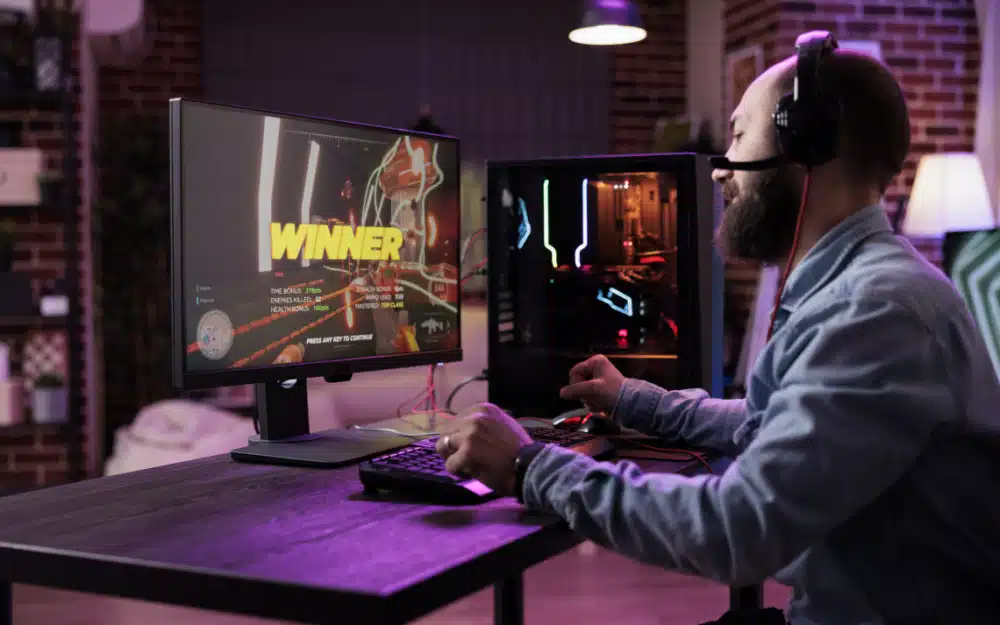In the early days of PC gaming, before the widespread use of the internet, getting your hands on new games was a challenge. Buying games from retail stores was the norm, but for many gamers, shareware offered a revolutionary new way to experience a wide range of titles without breaking the bank. Shareware, a distribution model that allowed users to try games before purchasing them, transformed the landscape of PC gaming forever, paving the way for indie developers and digital distribution platforms.
The Rise of Shareware
Shareware emerged in the 1980s as a way for developers to distribute their software without the need for costly physical distribution. Instead of buying games outright, users could download shareware titles for free and try them out. If they liked the game and wanted to unlock additional content or features, they could then purchase the full version directly from the developer.
One of the earliest and most famous examples of shareware was id Software’s “Commander Keen” series, which debuted in 1990. The first episode of “Commander Keen” was released as shareware, allowing players to experience a portion of the game for free. If they enjoyed the game, they could purchase the full trilogy, unlocking additional levels and content.
The Shareware Model
The shareware model was simple yet effective. Developers would create a demo version of their game, typically containing a portion of the full game’s content. This demo would be distributed for free through various channels, including bulletin board systems (BBSs), floppy disk magazines, and later, the internet.
Players who downloaded the shareware demo could play through a limited portion of the game, giving them a taste of what the full version had to offer. If they wanted to continue playing beyond the demo, they would need to purchase the full version of the game, which often included additional levels, features, and content.
Shareware’s Impact on PC Gaming
Shareware had a profound impact on the world of PC gaming, democratizing access to games and empowering indie developers to reach a wider audience. Before shareware, getting a game published and distributed was a major challenge, requiring developers to secure deals with publishers and navigate the complex world of retail distribution.
With shareware, developers could bypass traditional publishers and distribute their games directly to players, allowing them to retain control over their creations and experiment with new ideas and concepts. This newfound freedom led to a proliferation of innovative and creative games, many of which went on to become classics in the industry.
The Shareware Boom
Throughout the 1990s, shareware experienced a boom in popularity, thanks in part to the growing popularity of the internet. As more people gained access to the web, shareware became even more accessible, with sites like Download.com and Tucows offering a vast library of shareware titles for download.
During this time, shareware became synonymous with indie gaming, with many developers using the shareware model to launch their careers. Games like “Doom,” “Wolfenstein 3D,” and “Duke Nukem 3D” gained massive followings through shareware, paving the way for their creators to become industry giants.
The Legacy of Shareware
While shareware has largely faded into obscurity in the age of digital distribution platforms like Steam and Epic Games Store, its impact on the gaming industry is undeniable. Shareware helped to popularize the concept of try-before-you-buy in gaming, paving the way for the free-to-play model that dominates the industry today.
Additionally, shareware played a crucial role in the development of indie gaming, providing a platform for independent developers to showcase their talents and reach a global audience. Without shareware, the gaming landscape would likely look very different today, with fewer opportunities for indie developers to thrive and innovate.
In conclusion, shareware transformed PC gaming forever, revolutionizing how games were distributed and consumed. By allowing players to try games before purchasing them, shareware empowered indie developers and paved the way for the digital distribution revolution that would follow. While shareware may be a relic of gaming’s past, its impact on the industry is still felt to this day.





